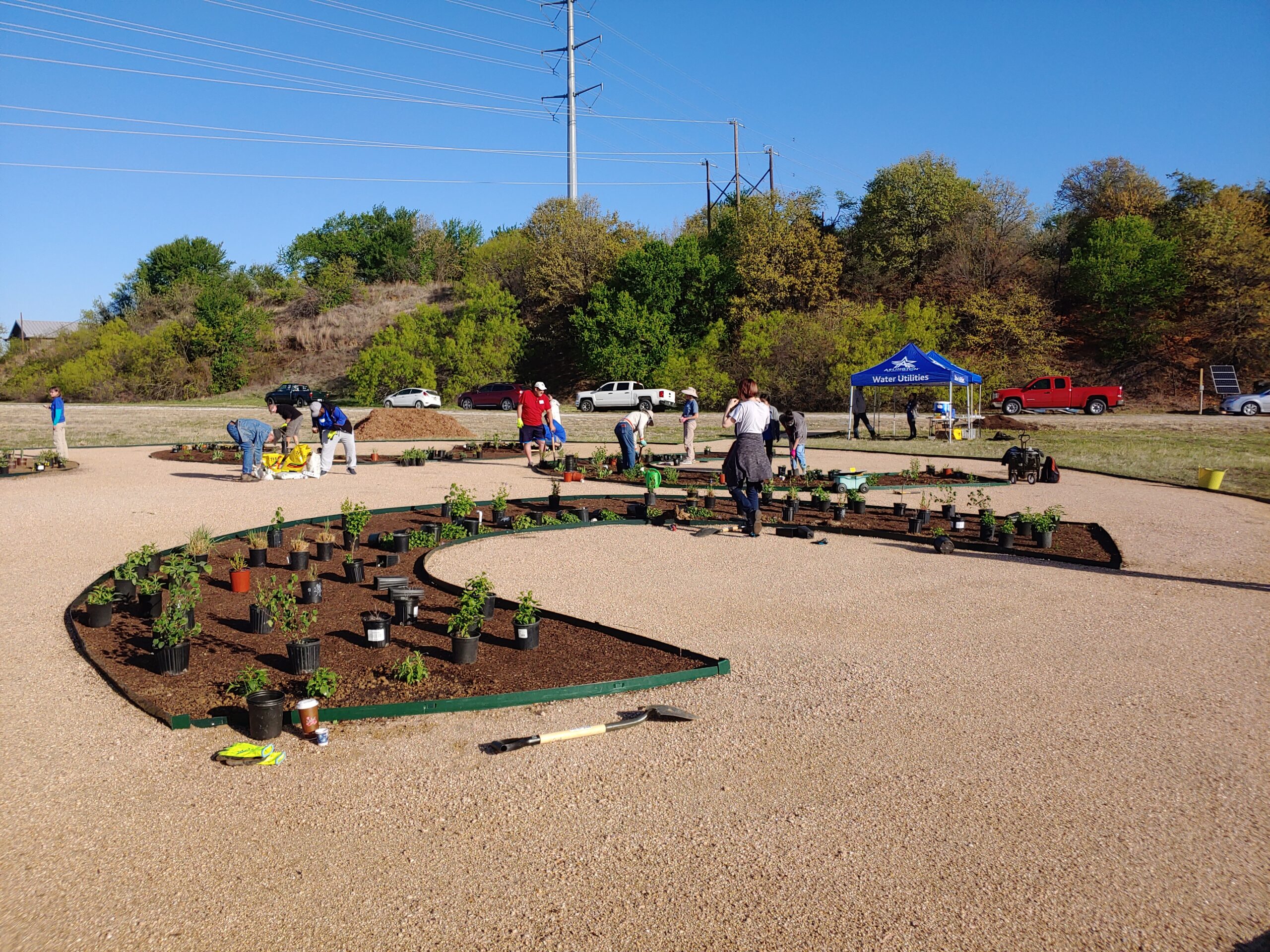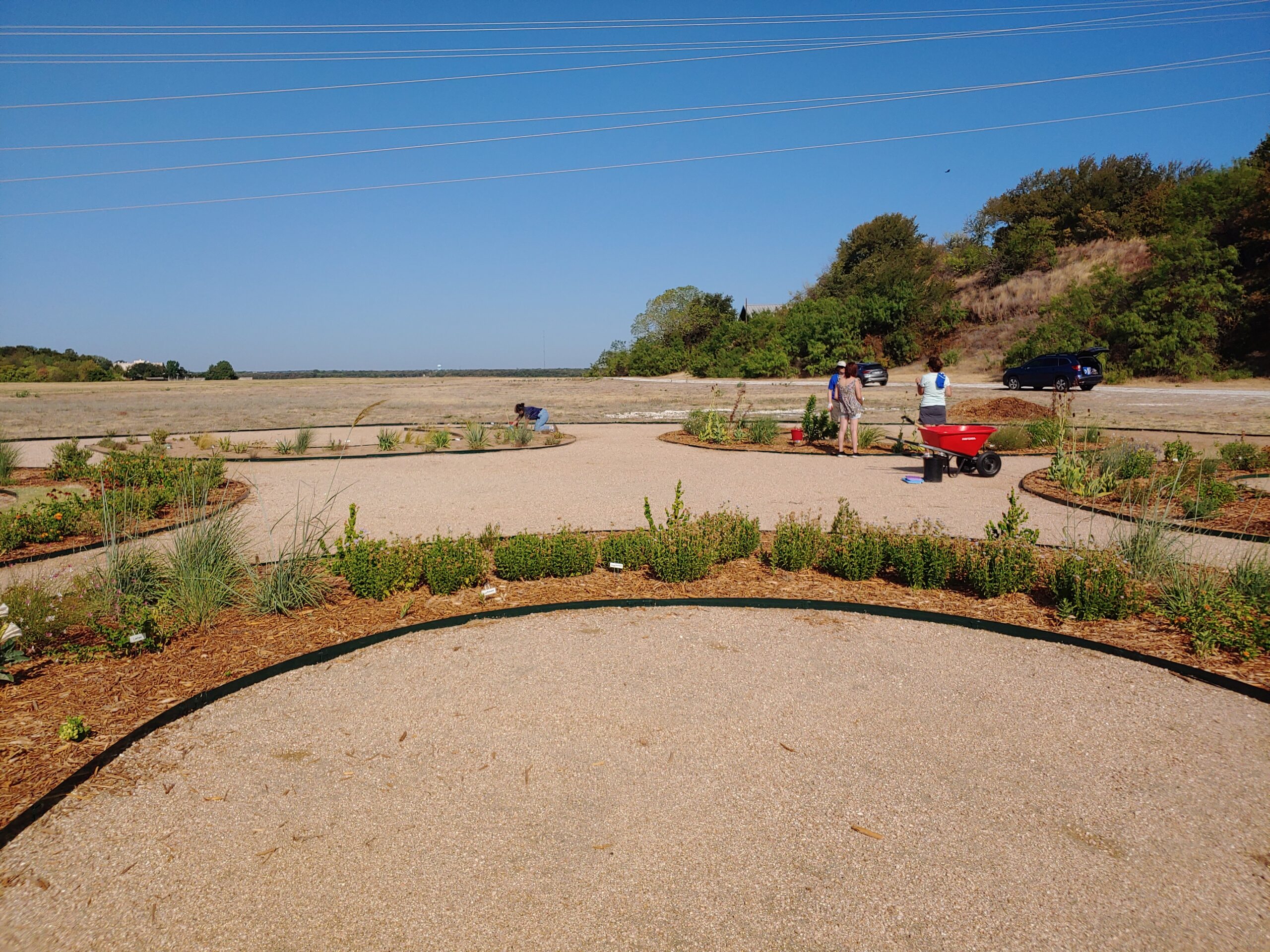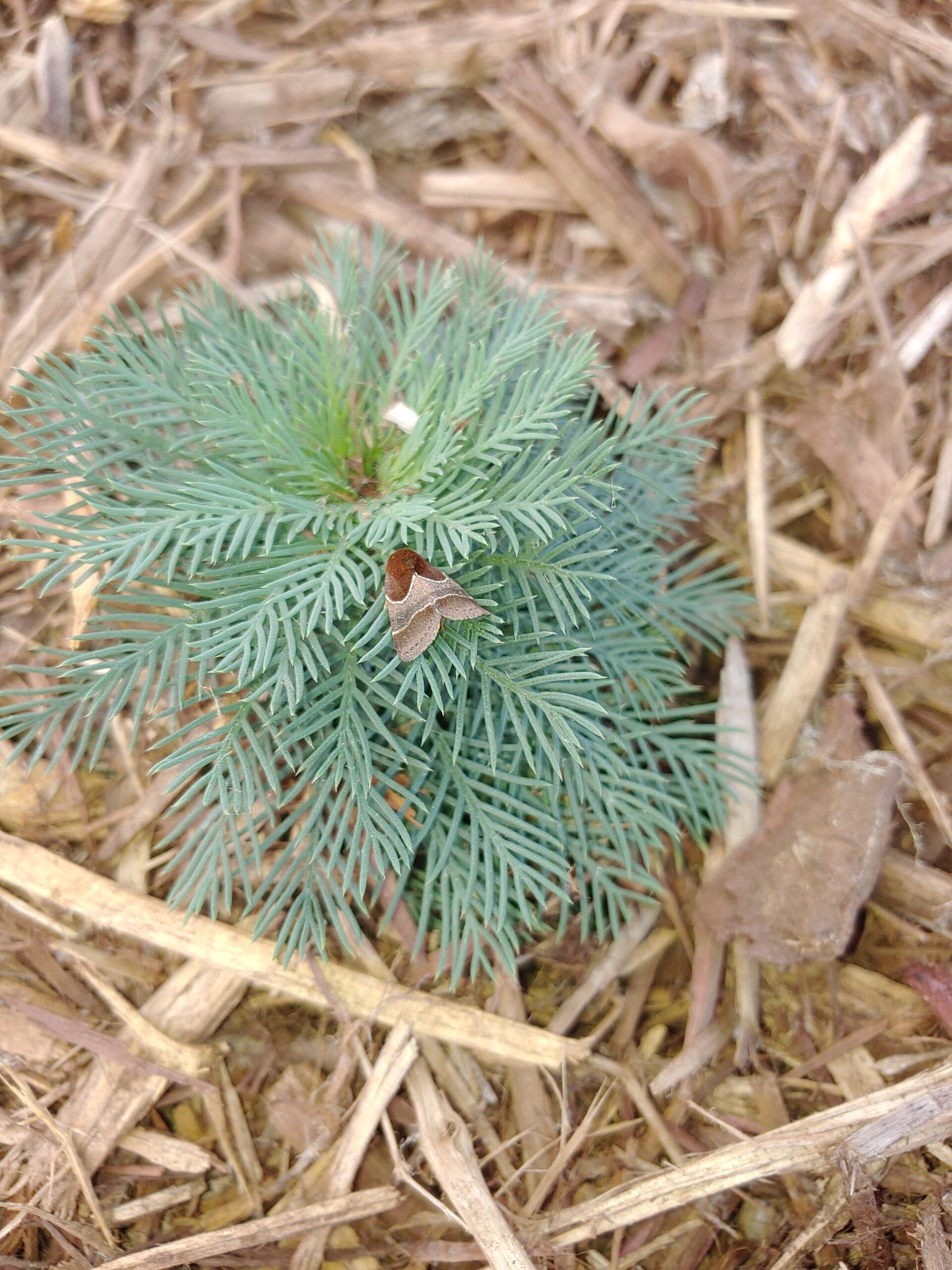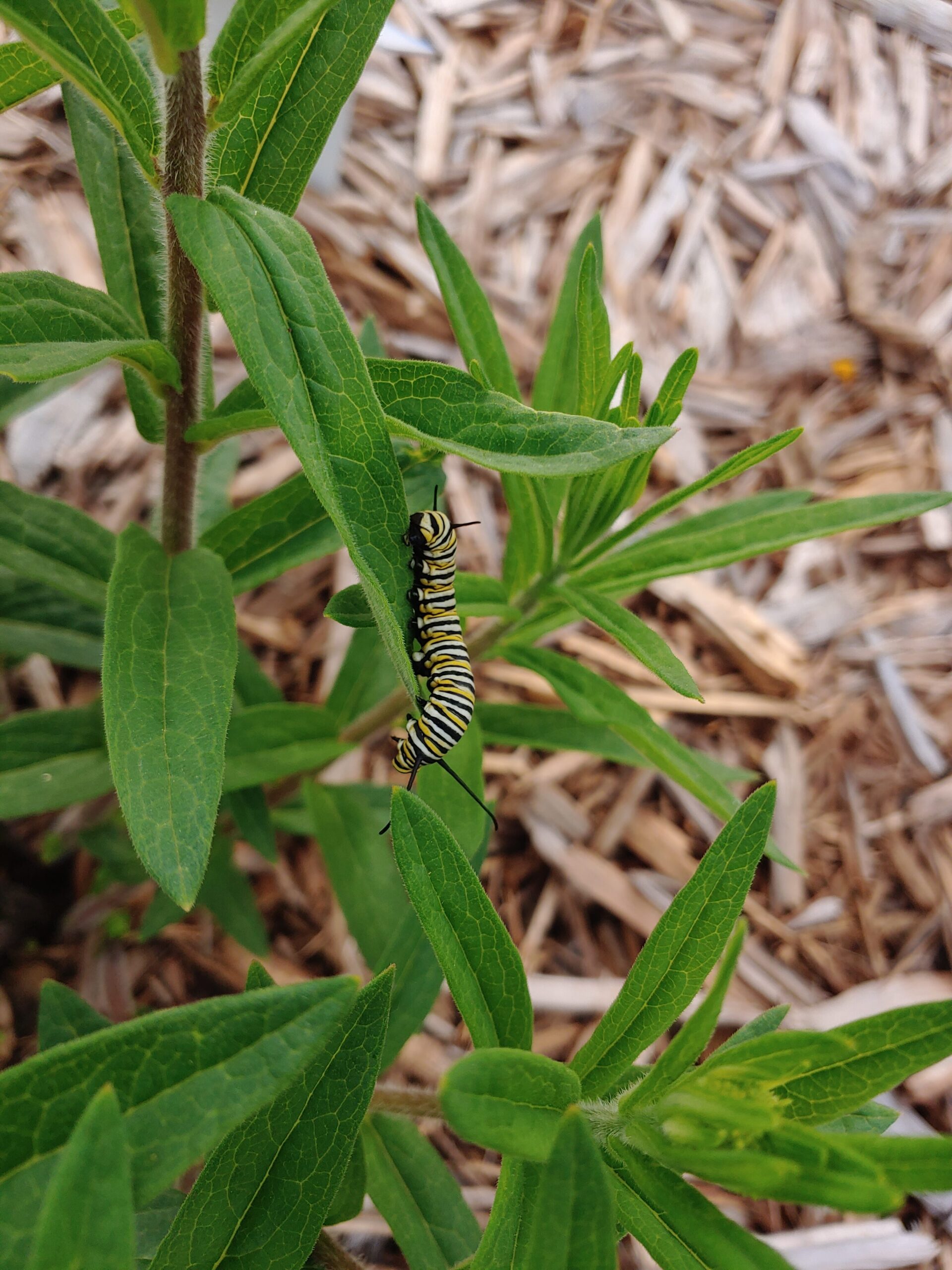Author: Melissa Walker, Stormwater Education Specialist, Texas Master Naturalist and Arlington Bee City Coordinator.
Bee City Affiliate: Arlington, TX
USDA Plant Zone: 8a
My top 5 Native Pollinator Plants:
- Milkweed
- Mealy Blue Sage
- Rock Rose
- Autumn Sage
- Partridge Pea
Fun Fact or Lessons Learned: Did you know Melissa in Greek means “Honeybee”? My favorite native bees are of course the Long-horned bees (Genus Melissodes) It took a long time, but I finally figured out what I was meant to do in my life!
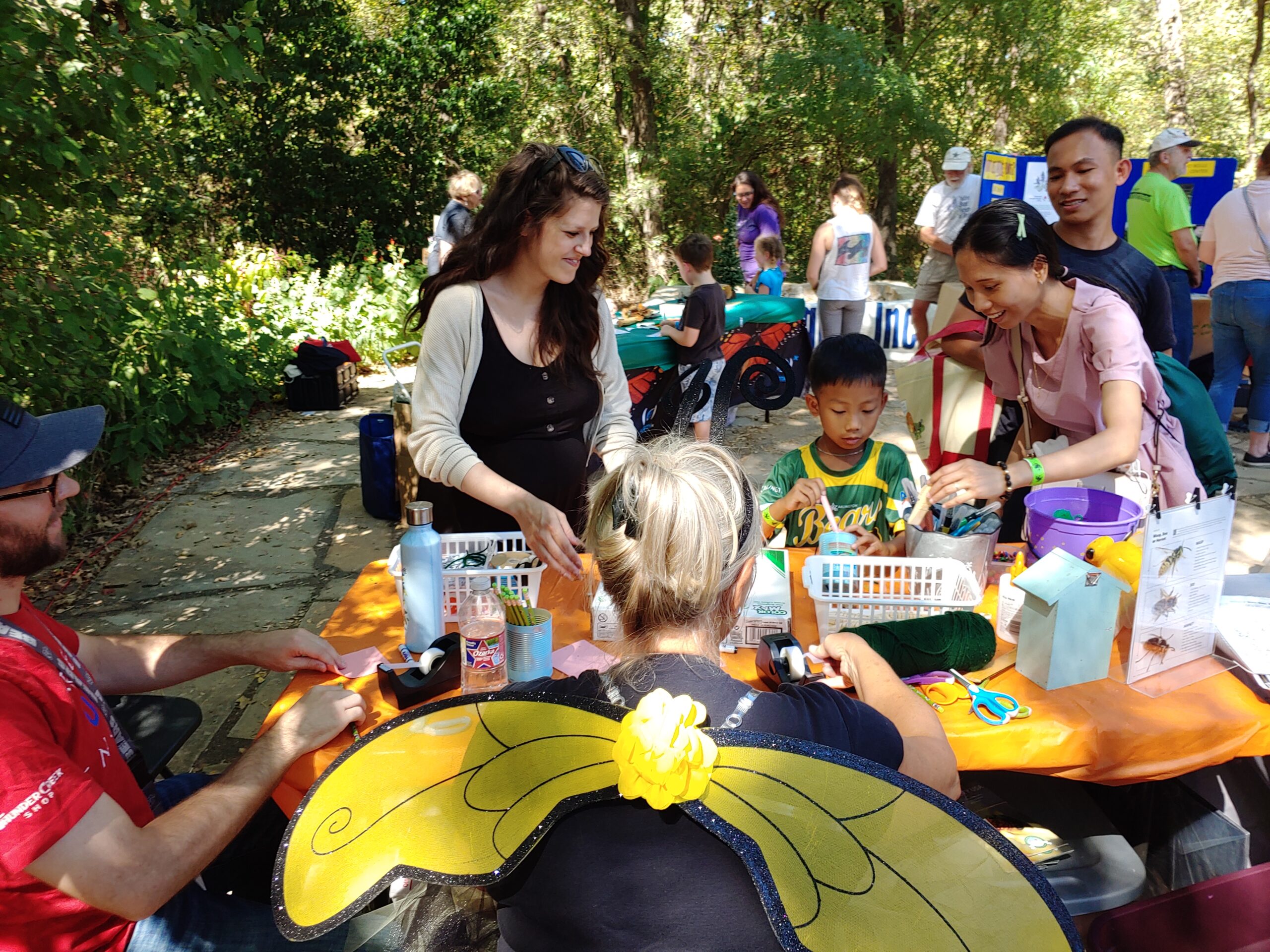
Our Bee City Committee was formed in 2020 and is comprised of local residents that are passionate about native pollinators. They come from a variety of backgrounds including university professors, teachers, students, and even a few retired co-workers that have brought their ideas of how to promote pollinators, create habitat, and develop education programs for our community. This special group of people has helped developed a broad program that, not only encourages the creation of habitat and the reduction of pesticide use in our community, but also encourages learning about the different pollinator species that can be found in our own backyards. As our program moves forward, I hope that our committee can help new communities become a part of the Bee City USA family.
Pollinators of Arlington project
The Pollinators of Arlington project is part of the Arlington Citizen Science Program which was created to support my Stormwater Education Water Quality program. When we talk about pollinators, most people just think about honeybees and monarch butterflies, I wanted to have a project that would identify the native bees, butterflies, moths, and other pollinating insects found in Arlington and then be able to utilize the data to provide a more complete picture of our native pollinators. I also wanted a unique way to engage our community about stormwater quality and pollution prevention initiatives while also getting more residents outside exploring our local environment.
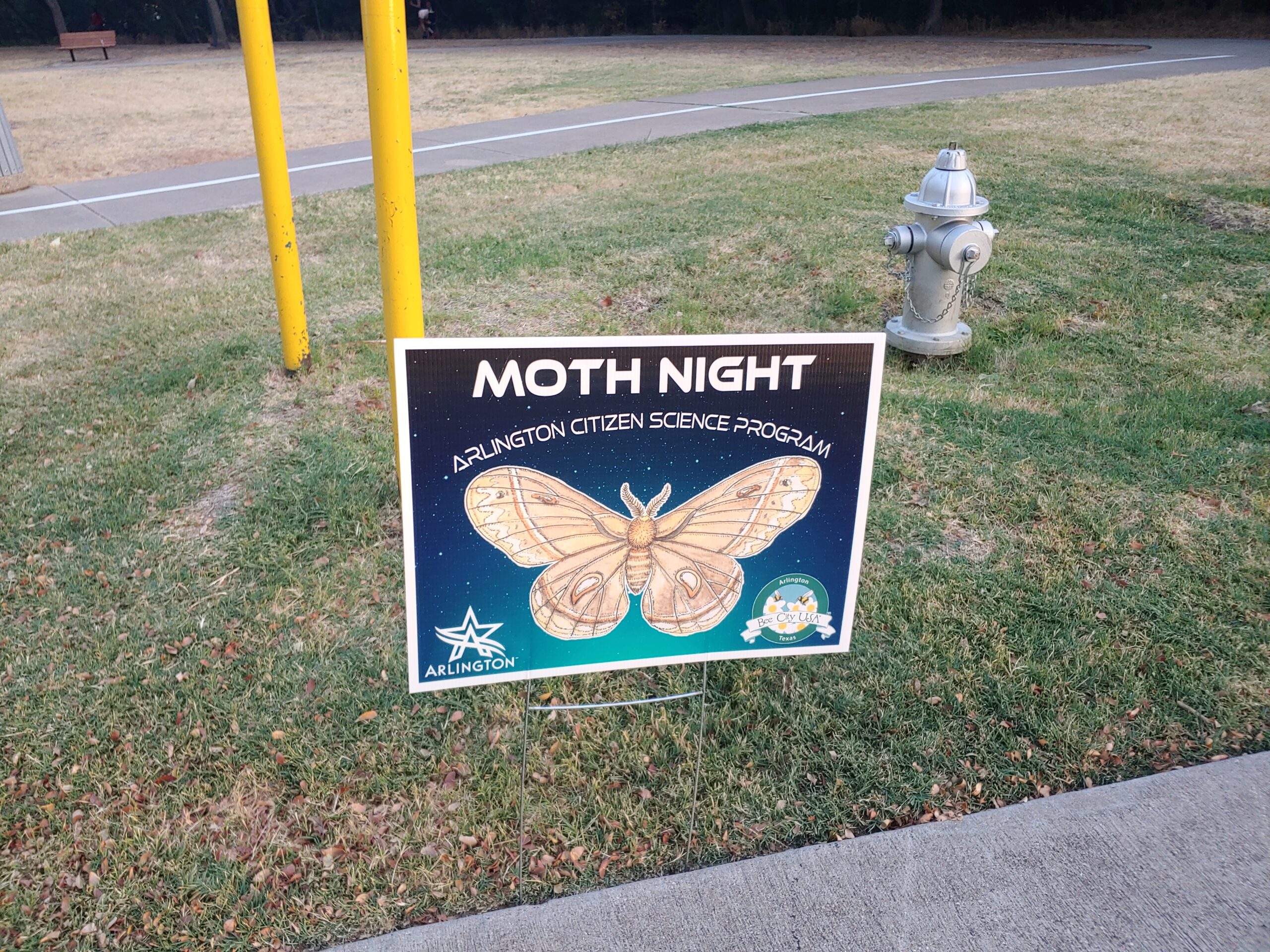
Using the iNaturalist application, I set up a project to allow users of this application to collect pollinator data throughout the City of Arlington. Since 2021, community volunteers and other nature enthusiast have made over 5,443 observations of 693 different species of native bees, beetles, moths, butterflies, and other pollinating insects. As more organized bio-survey events get on the calendar, these numbers will continue to increase providing a better understanding of our native pollinators’ population. Our committee is currently sponsoring events such as Moth Night, Bat Night and Pollinator Bio-blitzes by partnering with our Parks and Recreation Department, River Legacy Science Center, Texas Parks and Wildlife, and Tarrant County Community College’s Southeast Campus Sustainability Committee.
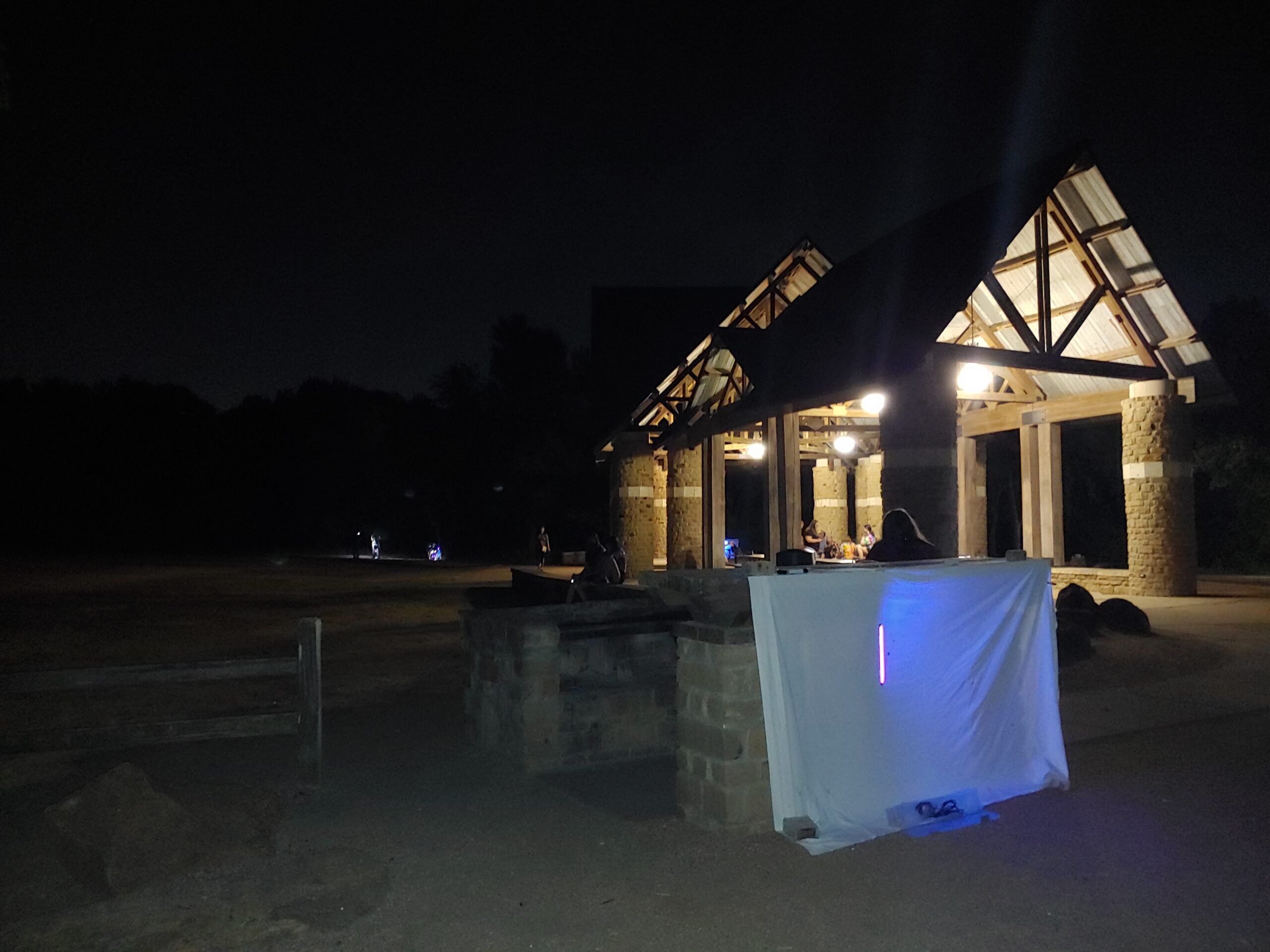

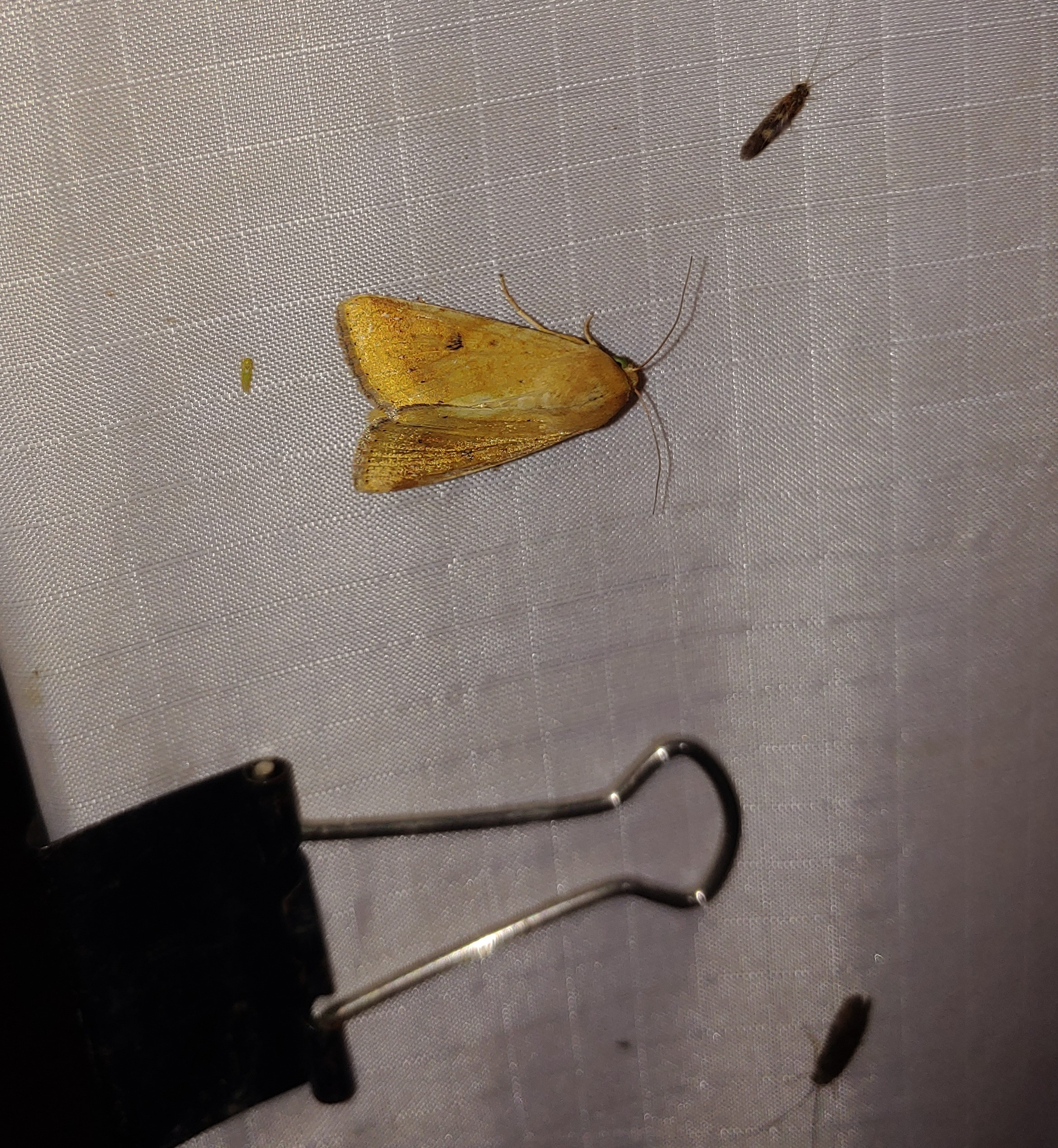
Pollinator Education
The pollinator education program focuses on the importance of pollinators and how they are affected by habitat loss, pesticides, diseases, and parasites as well as other environmental factors. Using pictures of native bees, butterflies, moths, and other insects from our Pollinators of Arlington project, this program helps our K-12 students along with adult residents learn about the ecosystem services that pollinators provide to our food supply, local wildlife and native plant communities. Through interactive games and activities, the program stresses creating native plant gardens and landscapes which provide food, water, and nesting places along with pesticide and fertilizer reduction to help our local pollinators. Our Bee City committee members also attend community events to promote native bee and pollinator education.
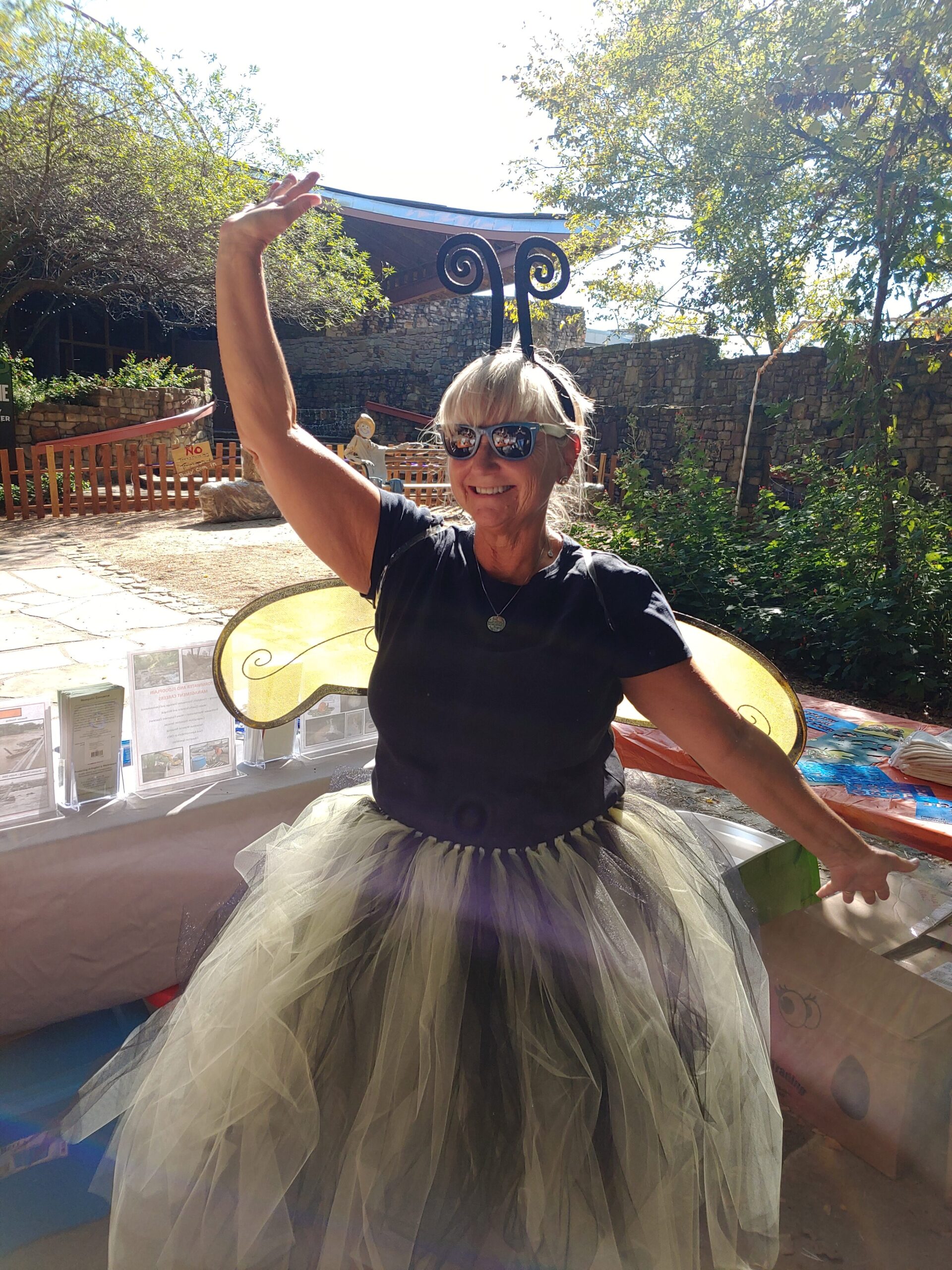
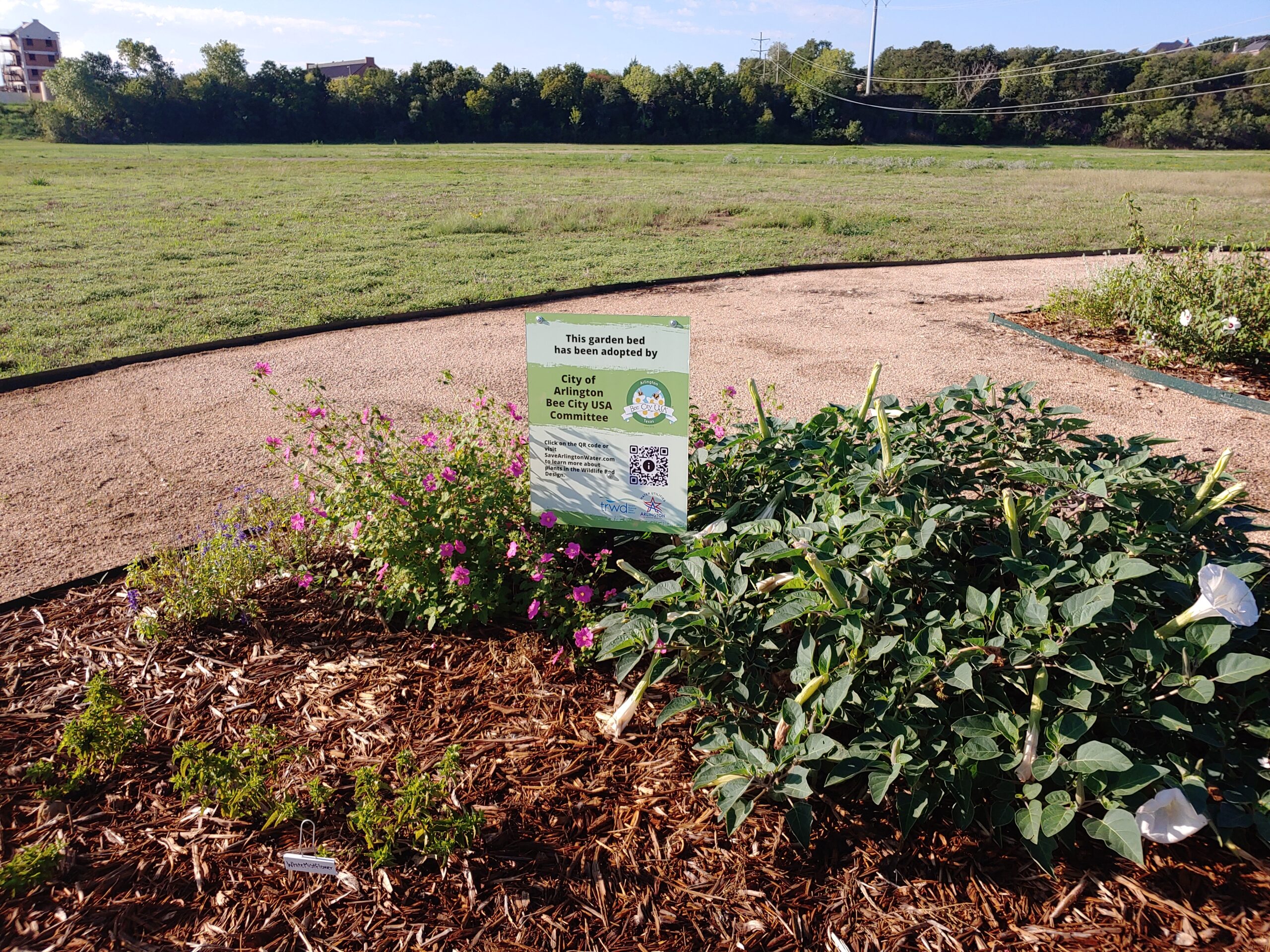
Demonstration Gardens
Our Bee City committee members wanted to highlight the use of native and/or adapted plants for gardens and landscapes, therefore our committee is helping support the City of Arlington’s Water Utilities Department in their water conservation efforts by sponsoring a wildlife bed at the Lake Arlington Native Plant and Pollinator Garden. We will also be working with the Tarrant Regional Water District to install a pollinator garden and special pollinator book collection at Arlington’s Southwest Branch Library. These projects provide places where residents can see different native plants and attend presentations to learn about our native pollinators. Presentations provide information on creating pollinator habitat and utilizing integrated pest management practices to reduce pesticides and fertilizers in our environment.
